Pres. Donald Trump’s administration ordered a halt to a Biden-era program meant to provide $5 billion in funding for a nationwide network of EV charging stations. It’s the latest step by the White House to curtail EV adoption. But this program could hurt one of the most powerful men in Trump’s inner circle, Tesla CEO Elon Musk, who also runs the new Department of Government Efficiency.
The White House is “immediately suspending” efforts by the National Electric Vehicle Infrastructure program, or NEVI, to set up a nationwide network of public EV chargers.
Created during the Biden administration, NEVI was expected to provide $5 billion in assistance to the various states, a fund created by the 2021 Infrastructure Investment and Jobs Act. The lack of a robust charging network has been seen as one of the critical obstacles to more widespread adoption of EVs by the American public.
The program requires federal approval of each state’s plans. But the U.S. Department of Transportation now has “decided to review the policies underlying” the NEVI effort, a memo issued by the agency told state transportation directors. Revised policies are expected to be released this coming spring. In the meantime, new charger projects appear to be on hold.
The impact could be widespread, impacting not only charging companies but automakers participating in the charger rollout. That appears to include Tesla which has so far received $31 million in funding from NEVI. The EV manufacturer is run by one of the most influential figures in the Trump administration, Elon Musk.
Programs on hold
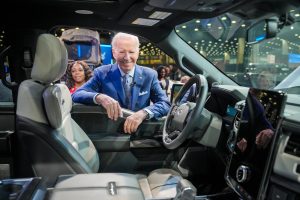
Former Pres. Joe Biden, shown here checking out a Ford F-150 Lightning, was a strong advocate of EVs.
For now, the memo advised state officials, “no new obligations may occur” using NEVI funds. It’s unclear precisely how many projects will be impacted but former President Joe Biden, who backed the effort, had hoped to see as many as 500,000 public EV chargers installed across the U.S. by 2030. A sizable share of those would benefit from federal assistance.
The White House hold on NEVI was widely anticipated, Trump signaling plans to curtail a variety of federal programs supporting an EV rollout, including tax credits for buyers of up to $7,500 for qualifying vehicles.
At least six states have idled their own NEVI programs, according to Loren McDonald. He tracks NEVI as chief analyst at the analytics firm Paren, and lists Alabama, Oklahoma, Missouri, Rhode Island, Ohio and Nebraska among those currently on hold. He told Politico that Rhode Island and Ohio were among the states most aggressively pursuing public charger growth backed by NEVI funds. That has so included installations along key routes, such as Interstate-80 in Ohio.
Other states appear to be continuing their programs, at least those that had received prior authorization.
“We’re still seeking guidance to further clarify and understand all of the impacts and implications of the pause and to plan next steps accordingly,” Barbara LaBoe, a spokesperson for the Washington State Department of Transportation, said in a statement on Tuesday.
A fight ahead
Currently, 51 NEVI-funded stations are in operation in the U.S., with hundreds more in progress, according to the NEVI Awards Dashboard. As has become a working modus operandi of the Trump administration, some website content related to the program has now been pulled down or had public access blocked by the Federal Highway Administration, or FHWA.
As with many of the moves made under the Trump administration since it took power last month, the hold on NEVI is certain to be challenged in court, particularly any effort to claw back funds already committed or distributed.
Such a move “appears to ignore both the law and multiple restraining orders that have been issued by federal courts,” Andrew Rogers, the deputy FHWA administrator under Biden, told Politico.
He cited a Watergate-era law that specifically bars a president from unilaterally blocking funds approved by Congress. The Constitution provides for the House and Senate to approve government spending programs.
The new memo is a “direct violation: of the 1974 Impoundment Control Act,” asserted Rogers, who is now senior vice president at Boundary Stone Partners. But Trump has charged that the law is unconstitutional.
More Trump Auto News
- EV Charging is About to Get a Lot Easier
- GM Teams with ChargePoint to Install 500 Ultra-Fast Chargers
- Charger Companies Move to Prevent Vandalism, Theft
Move could hurt Musk
With battery-electric vehicles and plug-in hybrids now accounting for about 10% of the U.S. new vehicle market there’s been a broad push to expand the current U.S. public charging network which stood at 74,627 stations at the beginning of the year, according to federal data. But approximately 52,000 of those are in California, four times more than in New York, the next state on the list.
NEVI isn’t the only source of funding for the rollout. EVgo, one of the biggest operators of public charging stations, received a $1.25 billion in loans from the U.S. Department of Energy during the waning days of the Biden administration, for example. Various state funds have been tapped by companies like EVgo, ChargePoint, Shell and Electrify America, as well as cash from private investors. But NEVI was seen as critical to reaching a point where EV drivers wouldn’t have to worry about finding places to plug in wherever they traveled.
Among the beneficiaries of the program: Tesla which so far has received $31 million from NEVI to support the growth of its Supercharger program. That cash required Tesla to begin opening that proprietary network up to use by other manufacturers. Tesla had stood to receive substantial additional money going forward under NEVI.
Tesla not only could lose that money but, if Trump moves ahead as planned, the current EV tax credit program also would be scuttled. Musk acknowledged this would impact Tesla by making its products less affordable. But he also suggested it would come out positive for his company since it would “devastate” rivals, such as General Motors, Volkswagen, Rivian and Polestar which are even more dependent on sales incentives as they ramp up their own EV programs.


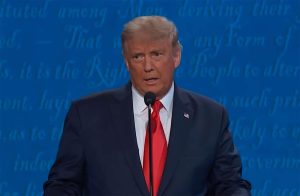
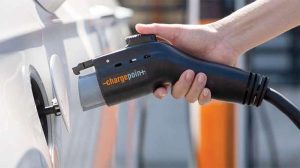
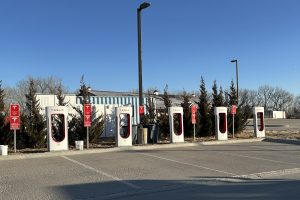
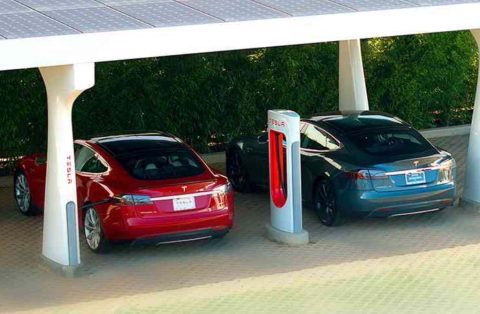



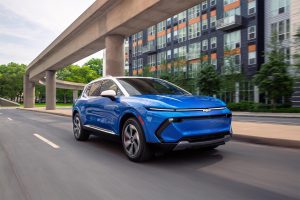
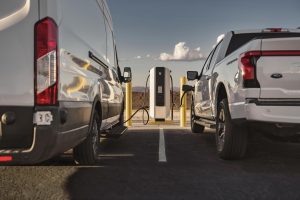
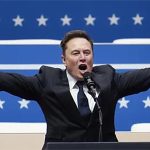


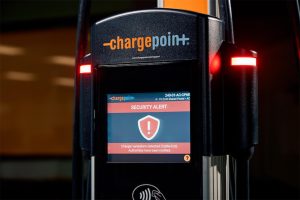
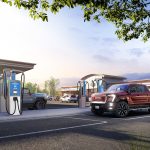
Its about time. It is not the job of the US government to provide EV charging any more than building gas stations and truck stops.
Common sense pervails, at last.
False! Do you know how much money the feds invest in the oil industry every year? About $19 billion directly. And billions more specifically to protect global shipping lines. The feds also invested billions in previous subsidies to the oil industry when setting up the nationwide network of service stations.
Here’s an interesting article published by a chemical industry outlet: https://cen.acs.org/articles/89/i51/Long-History-US-Energy-Subsidies.html
Yet another: https://www.eesi.org/papers/view/fact-sheet-fossil-fuel-subsidies-a-closer-look-at-tax-breaks-and-societal-costs
And more…the subsidies actually increasing: https://www.eia.gov/analysis/requests/subsidy/
Sorry, Jim, but facts need to outweigh politics and personal opinions not based on facts.
Paul E.